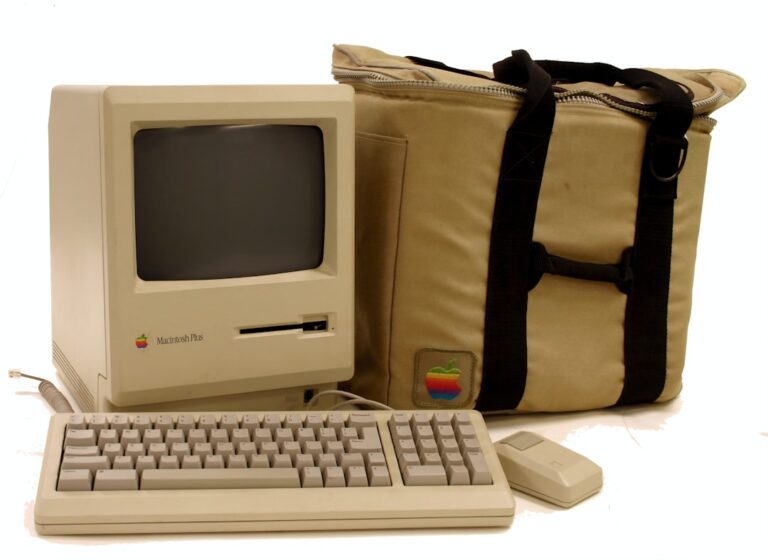Low carb meals have gained popularity in recent years as a method for promoting weight loss, improving overall health, and managing conditions such as diabetes and metabolic syndrome. This dietary approach involves reducing carbohydrate consumption, particularly from refined and processed sources, while emphasizing whole, nutrient-dense foods. By limiting carbohydrate intake, the body is encouraged to utilize fat for energy instead of relying on glucose from carbohydrates.
This metabolic shift can result in improved insulin sensitivity, better blood sugar regulation, and a reduction in cravings and hunger. Low carb diets typically include a variety of foods such as lean proteins, healthy fats, non-starchy vegetables, and limited amounts of fruits. Common protein sources include poultry, fish, eggs, and lean meats, while healthy fats can be obtained from sources like avocados, nuts, seeds, and olive oil.
Non-starchy vegetables, such as leafy greens, broccoli, cauliflower, and bell peppers, provide essential nutrients and fiber while keeping carbohydrate intake low. When implemented correctly, low carb eating can be a sustainable and enjoyable approach to nutrition, offering a wide range of delicious and satisfying meal options. However, it is important to note that the optimal carbohydrate intake can vary among individuals, and consulting with a healthcare professional or registered dietitian is advisable before making significant dietary changes.
Key Takeaways
- Low carb meals can help with weight management and blood sugar control
- Eating low carb can lead to increased energy levels and improved mental clarity
- Low carb breakfast ideas include omelettes, Greek yogurt with berries, and avocado toast
- Low carb lunch and dinner recipes can include cauliflower rice, zucchini noodles, and lettuce wraps
- Low carb snack options include nuts, cheese, and vegetable sticks with hummus
- Tips for incorporating low carb meals into your lifestyle include meal planning and reading food labels
- Low carb living can be supported by resources such as cookbooks, online communities, and nutritionists
Benefits of Low Carb Eating
Weight Management and Appetite Control
One of the most notable advantages of low-carb eating is weight loss. By reducing carb intake, many individuals experience a decrease in appetite and an increase in fat burning, leading to successful weight management.
Heart Health and Blood Sugar Control
Low-carb eating can also improve markers of heart health, such as reducing triglycerides, increasing HDL (good) cholesterol, and lowering blood pressure. Additionally, low-carb meals can help stabilize blood sugar levels and improve insulin sensitivity, making it a valuable approach for those with diabetes or prediabetes.
Increased Energy and Overall Well-being
Many people also report increased energy levels and mental clarity when following a low-carb diet. Furthermore, low-carb eating can be beneficial for managing conditions such as polycystic ovary syndrome (PCOS) and epilepsy. Overall, the benefits of low-carb meals extend beyond weight loss to encompass improved overall health and well-being.
Low Carb Breakfast Ideas

When it comes to low carb breakfast options, there are plenty of delicious and satisfying choices to start your day off right. One popular option is a vegetable omelet made with eggs, spinach, bell peppers, and feta cheese. This provides a good balance of protein, healthy fats, and fiber-rich vegetables to keep you full and energized throughout the morning.
Another great low carb breakfast idea is Greek yogurt topped with berries and a sprinkle of nuts or seeds. This provides a good source of protein, probiotics, and antioxidants while keeping the carb content in check. For those who prefer a savory breakfast, avocado toast made with whole grain or low carb bread is a tasty and filling option.
The healthy fats in avocado paired with the fiber from the bread make for a satisfying meal that won’t spike blood sugar levels. If you’re in a rush in the morning, a smoothie made with unsweetened almond milk, protein powder, spinach, and a small amount of fruit can be a convenient low carb breakfast option. This provides a good balance of nutrients without the need for cooking or extensive preparation.
Lastly, chia seed pudding made with unsweetened almond milk and topped with nuts or coconut flakes is a great make-ahead breakfast that can be customized to your taste preferences. With these delicious low carb breakfast ideas, you can kickstart your day with a nutritious and satisfying meal that supports your health and wellness goals.
Low Carb Lunch and Dinner Recipes
| Recipe Name | Calories | Carbohydrates (g) | Protein (g) | Fat (g) |
|---|---|---|---|---|
| Grilled Chicken Salad | 300 | 10 | 25 | 15 |
| Zucchini Noodles with Pesto | 250 | 15 | 10 | 20 |
| Salmon with Asparagus | 350 | 5 | 30 | 25 |
When it comes to low carb lunch and dinner options, there are endless possibilities for creating flavorful and satisfying meals. One popular choice is grilled chicken or fish paired with a generous serving of roasted or steamed non-starchy vegetables such as broccoli, cauliflower, or asparagus. This provides a good balance of protein and fiber while keeping the carb content low.
Another delicious low carb option is zucchini noodles topped with marinara sauce and lean ground turkey or tofu for a satisfying pasta alternative. For those who enjoy Mexican cuisine, lettuce wraps filled with seasoned ground beef or turkey, salsa, avocado, and cheese make for a tasty and low carb meal. If you’re craving comfort food, cauliflower rice stir-fry with mixed vegetables and your choice of protein is a great way to satisfy your hunger without the excess carbs.
Additionally, grilled shrimp or tofu skewers paired with a side salad and vinaigrette dressing is a light yet satisfying option for lunch or dinner. For those who enjoy soups and stews, a hearty vegetable soup made with broth, assorted vegetables, and lean protein such as chicken or turkey is a comforting low carb meal that can be enjoyed any time of year. With these creative and delicious low carb lunch and dinner recipes, you can enjoy a wide variety of satisfying meals while supporting your health and wellness goals.
Low Carb Snack Options
When it comes to low carb snacking, there are plenty of tasty options to satisfy your cravings without derailing your healthy eating plan. One popular choice is raw vegetables such as cucumber slices, bell pepper strips, or cherry tomatoes paired with hummus or guacamole for a satisfying and nutritious snack. Another great low carb snack option is mixed nuts or seeds such as almonds, walnuts, or pumpkin seeds for a good source of healthy fats and protein to keep you feeling full between meals.
For those who enjoy dairy products, string cheese or cheese cubes paired with a small serving of berries make for a convenient and satisfying snack. If you’re in the mood for something sweet, a small serving of Greek yogurt topped with cinnamon and a sprinkle of nuts or seeds can satisfy your sweet tooth while providing a good source of protein and probiotics. Additionally, hard-boiled eggs or deviled eggs are a convenient and portable low carb snack that can be enjoyed on the go.
For those who enjoy savory snacks, beef jerky or turkey jerky provide a good source of protein without the excess carbs found in many traditional snack foods. With these delicious low carb snack options, you can curb your hunger and stay on track with your healthy eating goals.
Tips for Incorporating Low Carb Meals into Your Lifestyle

Focus on Nutrient-Dense Foods
One important tip is to focus on whole, nutrient-dense foods such as lean proteins, healthy fats, non-starchy vegetables, and some fruits while minimizing processed and refined carbohydrates. This can help ensure that you are getting the essential nutrients your body needs while keeping the carb content in check.
Plan Ahead and Add Variety
Another helpful tip is to plan your meals ahead of time and prepare ingredients in advance to make it easier to stick to your low carb eating plan throughout the week. It’s also important to experiment with different flavors and cooking methods to keep your low carb meals interesting and enjoyable. Trying new recipes and incorporating herbs, spices, and healthy condiments can help add variety to your meals while keeping them low in carbs.
Stay Hydrated and Find Support
Additionally, staying hydrated and being mindful of portion sizes can help support your low carb lifestyle by promoting satiety and preventing overeating. Lastly, finding support from friends, family, or online communities can provide encouragement and accountability as you navigate your low carb journey. By incorporating these tips into your lifestyle, you can successfully embrace low carb eating as a sustainable way to support your health and wellness goals.
Conclusion and Additional Resources for Low Carb Living
In conclusion, low carb meals offer numerous benefits for weight management, overall health, and well-being. By focusing on whole, nutrient-dense foods while minimizing processed carbohydrates, you can enjoy delicious and satisfying meals that support your health goals. From creative breakfast ideas to flavorful lunch and dinner recipes to convenient snack options, there are endless possibilities for incorporating low carb meals into your lifestyle.
For those interested in exploring low carb living further, there are many additional resources available to support your journey. Cookbooks focused on low carb recipes can provide inspiration and guidance for creating delicious meals that align with your dietary preferences. Online communities and forums dedicated to low carb living can offer support, advice, and recipe ideas from others who are following a similar eating plan.
Additionally, working with a registered dietitian or nutritionist who specializes in low carb eating can provide personalized guidance and support as you navigate your dietary choices. Overall, embracing low carb meals as part of your lifestyle can be a rewarding way to support your health goals while enjoying delicious and satisfying foods. With the right approach and resources at your disposal, you can successfully incorporate low carb eating into your daily routine for long-term health and wellness.
If you’re looking for more information on low carb meals, be sure to check out the article “The Benefits of Low Carb Dining” on www.allerdining.com. This article provides insight into the advantages of incorporating low carb meals into your diet and offers tips for creating delicious and satisfying low carb dishes. Whether you’re looking to lose weight, manage diabetes, or simply improve your overall health, this article can help you understand the benefits of low carb dining.
FAQs
What are low carb meals?
Low carb meals are meals that are low in carbohydrates, typically containing less than 20-50 grams of carbohydrates per serving. These meals often focus on protein, healthy fats, and non-starchy vegetables as the main components.
What are the benefits of eating low carb meals?
Eating low carb meals can help with weight loss, improve blood sugar control, and reduce the risk of certain chronic diseases such as diabetes and heart disease. It can also help to stabilize energy levels and reduce cravings for sugary and processed foods.
What are some examples of low carb meals?
Examples of low carb meals include grilled chicken with steamed broccoli, salmon with a side of sautéed spinach, a salad with mixed greens, avocado, and grilled shrimp, or a stir-fry with tofu and assorted vegetables.
Are there any potential drawbacks to eating low carb meals?
Some potential drawbacks of eating low carb meals include the risk of nutrient deficiencies if not carefully planned, initial side effects such as fatigue and irritability as the body adjusts to using fat for fuel, and the potential for missing out on certain fiber-rich foods if not careful.
Can low carb meals be suitable for vegetarians or vegans?
Yes, low carb meals can be suitable for vegetarians and vegans by focusing on plant-based sources of protein such as tofu, tempeh, legumes, and nuts, as well as non-starchy vegetables and healthy fats like avocado and coconut oil.









+ There are no comments
Add yours